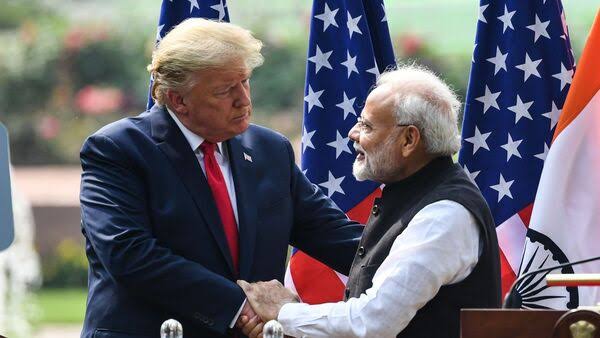Former US President Donald Trump has pledged to introduce reciprocal tariffs on India if he returns to the White House, accusing the country of imposing the highest tariffs on American goods.
Trump’s Plan for Reciprocal Tariffs
During a public event in Detroit, Donald Trump expressed his dissatisfaction with the current trade dynamics between the US and India, claiming that India’s tariff policies are unfair to American products. “Perhaps the most important element of my plan to make America extraordinarily wealthy again is reciprocity. It’s a word that’s very important in my plan because we generally don’t charge tariffs,” Trump remarked to the crowd.
This statement underscores Trump’s broader economic agenda, which he highlighted as focusing on fairness in trade. He believes that countries like India have taken advantage of the US by imposing steep tariffs on American goods while benefiting from lower or no tariffs in return.
Targeting India’s Trade Practices
India has been a frequent target in Trump’s rhetoric about trade imbalances. He described India as the “biggest tariff charger” among major global economies, indicating that the country’s policies are detrimental to American businesses. While Trump did not specify which products are most affected, the former president has previously criticized India’s tariffs on goods such as Harley-Davidson motorcycles and American agricultural products.
If elected, Trump promised to address this issue head-on by imposing reciprocal tariffs, ensuring that the US responds in kind to any high tariffs levied by India.
Reinvigorating America’s Wealth
Trump’s focus on “reciprocity” is part of his broader vision for strengthening America’s economic position. He argued that levying tariffs on countries like India, which he perceives to have unfair trade practices, would be a key strategy for making the US “extraordinarily wealthy again.” Trump did not elaborate on the specifics of his plan but made clear that he believes this approach would restore balance to international trade agreements.
As Trump continues to campaign on an economic platform, his promise of reciprocal tariffs could become a central talking point, particularly among voters concerned with trade deficits and the loss of manufacturing jobs to countries with lower tariffs.
Trump’s comments are expected to draw reactions both domestically and internationally, as trade relations between the US and India have been a subject of ongoing negotiation.
